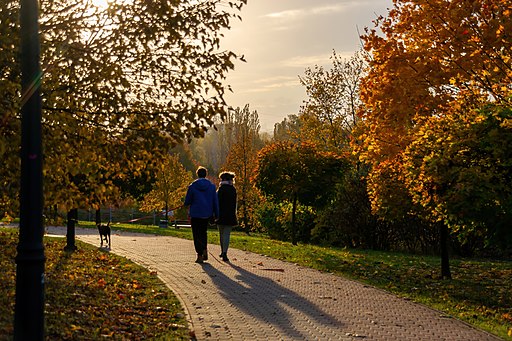
I admit to being a “stop and smell the roses” kind of girl. I like to savour my experiences and take my time. I hate to be rushed. I especially hate multi-tasking, and prefer to do one thing at a time, carefully, and to the best of my abilities.
This may be good, general life advice, but I’m just now learning that it’s not very helpful when it comes to overall health. For, the results of a new study on walking pace are posing a direct challenge to the way I have typically done things.
According to this new study, people who walk briskly throughout life, with a faster walking pace, have a longer life expectancy than those who walk more slowly. As a general rule, a brisk walking pace is considered to be about 3 mph, or about 100 steps a minute. When walking at this speed, you will typically be slightly out of breath, and will pass most other walkers. Those who walk more slowly move at just 1 or 2 mph and take only 50 steps per minute.
The particularly interesting finding here, is that weight, or BMI (body mass index) appears to have less to do with longevity than the pace at which people walk. Once again, we are confronted with the new, “fat but fit” rule, meaning that even if you are a bit overweight, you can still be stronger, healthier, and less likely to die than people who are thin – provided you exercise regularly. Researchers tried to accounted for other factors, such as whether or not a person smoked, but the results were still clear. People who walk more briskly have a lower risk of heart-related disease and mortality than their thinner, supposedly healthier counterparts.
For this particular study, 474, 919 people in the UK were followed over a ten year period. Their average age was 58 years, and their average BMI was 26.7, which means most participants were in the overweight category. They were divided into groups based on their BMI, waist circumference, body-fat percentage, and walking pace. Surprisingly, those who walked more slowly were more likely to die, no matter their weight. These findings challenge the way health risk is calculated, since excess weight has long been used to predict increased mortality for a wide variety of health conditions. Yet here, the participants most likely to die during the study were the thinnest ones – people with the lowest BMI, but who also walked slowly.
It is possible that some of the slower walkers were in poor health to begin with. After all, if you are feeling tired and sick, you’re not going to be walking very briskly. However, researchers tried to account for this possibility by also checking grip strength. And though greater grip strength did also correlate to a longer life expectancy, the effect was not as strong as the difference in walking pace. In short, people who walk faster tend to live longer – up to 15 to 20 years longer – than people who walk more slowly, even if they are overweight, or have a weaker grip strength.
So, I guess this means that I should learn to pick up my pace! Though it may still be a good idea to notice and be grateful for all the beautiful things in life, maybe I can still do that while slightly out of breath and looking over my shoulder as I pass. After all, I can still be mindful, even if I’m doing it at 100 steps a minute.
